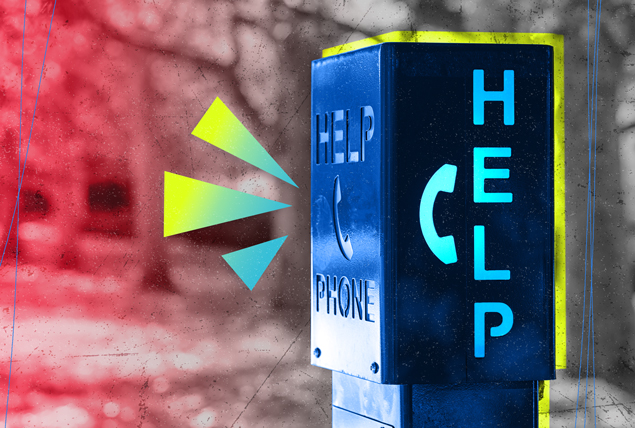How Do You Protect Your Mental Health When Heading to College?

Getting the facts about mental health can help you prepare for the stress of returning to college. Many college students, both women and men, struggle with their mental health as they navigate the demands of academic life.
What's the state of mental health among college students?
Returning to school can be equal parts exciting and stressful. For many students, the back-to-school grind causes more than a little stress.
"Common mental health issues college students experience can range from adjustment disorders to more severe conditions like anxiety disorders, depression, substance use disorders and eating disorders," said Ryan Sultán, M.D., an adult and pediatric mental health physician and assistant professor of clinical psychiatry at Columbia University Irving Medical Center/New York State Psychiatric Institute in New York City.
The prevalence of mental health issues on campuses has soared in recent years.
Out of more than 90,000 college students surveyed across the country, nearly half of them (44 percent) reported a struggle with depression, and 37 percent shared that they experience anxiety, suggested a 2022 report.
These numbers are the highest recorded in the 15 years that the Health Minds Study has been conducted, according to the National Education Association.
Why do college students struggle with mental health?
Higher education places a lot of demands on students. For high school graduates and returning college students, this period in their lives is one of significant change.
"The weight of being independent can be a challenge emotionally, socially and financially," said Kelli Johnson, Ph.D., dean of the College of Psychology and Behavioral Sciences at National Louis University's Chicago campus. "College represents the first major experience of having to make active efforts in developing friendships and intimate relationships, navigating boundaries and perhaps gaining clarity about their own identities."
College students must work through the challenges of their course load and carve out the foundation of their adult identities. If that wasn't stressful enough, they must also worry about financing their education. While financial aid is available, tuition costs have skyrocketed.
In-state tuition and fees at public national universities have risen 175 percent since 2003, according to the U.S. News & World Report. Hefty student debt has become the norm for millions of Americans.
Roughly 92 percent of Gen Z students are worried they won't be able to pay for the upcoming fall term, according to a 2023 report.
The "why" behind mental health concerns may be easy to identify, and more people are talking about how to address these issues. Yet, a stigma remains.
About 40 percent of students revealed that they believe people would think less of someone seeking treatment for mental health, as indicated in the Healthy Minds Study.
What can you do to better maintain your mental health in college?
College students have many reasons to feel stressed, but there are just as many ways to reclaim their mental health. Put some of these methods into practice to better maintain your mental health.
Get enough sleep
Pulling an all-nighter to study might help you pass that test. Staying out all night to party has its allure. Sleep deprivation is practically a badge of honor in college, but those sleepless nights will catch up to you.
The connection between sleep and mental health is well-documented. Being constantly tired can make it more difficult to manage your stress levels and may exacerbate the symptoms of mental health conditions.
Young adults should be getting seven to nine hours of sleep each night, according to the National Sleep Foundation. Set the alarm an hour before you should hit the sheets so you won't lose track of time so easily and can better prioritize sleep.
Live a healthy lifestyle
Prioritizing your mental health includes taking care of your physical health. Transitioning from secondary education to college is often the first time you will have full control over your meals, sleep schedule and even doctor's appointments.
Find an OB-GYN at college and make regular checkup appointments. Having a regular OB-GYN can help you take care of your sexual health and mental health.
It's also a good time to consider your birth control options if you are sexually active. Get the facts from your doctor—and don't be afraid to ask your doctor questions. They have heard it all. There is no such thing as a silly question.
If your anxiety levels rise during your period, reach out for suggestions to better cope. If you are uncomfortable with a particular doctor, find a new one. After all, this person will help support your health in the years ahead. You should feel comfortable and supported.
"Our minds and bodies are connected to each other and to our overall wellness. Exercise regularly, eat as healthily as you're able and develop a regular sleep schedule," Johnson said.
Develop a healthy routine
College is about exploring the unknown and discovering possibilities, but routine has its place, too. Determine what regular activities and appointments support your well-being.
Figure out what study habits work for you. Make time to exercise. But remember to allow space in your routine to unwind.
"Spend time on a regular basis doing activities or with people that bring you joy. Balance that with finding quiet time in the day to check in with yourself," Johnson said.
Create a social support group
For many people, college takes them away from their long-established support networks. Parents, siblings and childhood friends aren't as easily accessible. Find ways to build a new social support group at school.
Ways to help build a new social support group at college could include the following:
- Talk to your classmates.
- Join a study group.
- Go to dorm events.
- Find an on-campus affinity group.
Building relationships can make college life less stressful. But when you feel stress creeping in, you can turn to your support group for help.
Seek mental health support
A routine can also help you recognize when to ask for help.
"Students should be mindful of disruptions in their regular sleep habits, appetite, concentration, hygiene, energy level, etc.," Johnson said.
While the idea of asking for help may feel overwhelming, remember that you can start small.
"Help could be asking a friend to make sure you get sleep or leave a party early. Help could be going to the counseling center on campus to get a screening," said Stacy Haynes, Ed.D., L.P.C., a counselor at Rutgers University-Camden's student wellness center in Camden, New Jersey. "Help could be taking a mental health break every day and doing something you enjoy like walking or seeing a movie with friends."
Many other students face these issues, and on-campus and off-campus resources are dedicated to providing support.
You can also take advantage of free online resources. The National Institute of Mental Health (NIMH) and the National Alliance on Mental Illness (NAMI) are good places to learn about mental illness and find support.
Even YouTube has countless videos to help you cope with stress management. Sultán pointed to the free versions of apps such as Headspace and Calm. These apps can help you learn how to destress in a healthy way.
Remember, asking for help is never the wrong choice.
"Know that asking for help is a sign of maturity and self-awareness, not weakness," Johnson said.
What kinds of mental health resources can you access on campus?
Colleges and universities offer their students many different mental health resources.
"Most universities and colleges offer counseling and psychological services, often at no extra cost, as part of their student health services," Sultán said. "These typically include individual and group therapy, crisis intervention, and workshops."
For example, National Louis University offers workshops on self-care, preventive wellness and family stress, according to Johnson. The student wellness center at Rutgers-Camden is launching Wellness Wednesdays, which will feature stress-relieving activities, Haynes said.
What should I know about campus mental health resources?
Check out what your campus wellness center has to offer at the start of the semester. If you need help during the school year, you will already know where it is located and what resources are available.
Keep in mind that the prevalence of mental illnesses on college campuses means there is a high demand for support. Everyone, not just college students, is facing longer wait times for mental healthcare services. It may take time to get an appointment with an on-campus counselor.
If you can't get the help you need on-campus right away, you can use free 24/7 hotlines:
Some students may decide to seek support off campus. You should understand how you will pay for these services before using them.
"For those with insurance, they can often seek services outside of the college. It's crucial to understand what their policy covers, which might involve contacting the insurance provider," Sultán said.
The bottom line
Maintaining your mental health in college can be difficult, but you are not alone if you struggle. Many other students face these issues, and on-campus and off-campus resources are dedicated to providing support.
As you get back to the college grind, think about ways to take care of yourself and don't hesitate to seek help when needed.




















